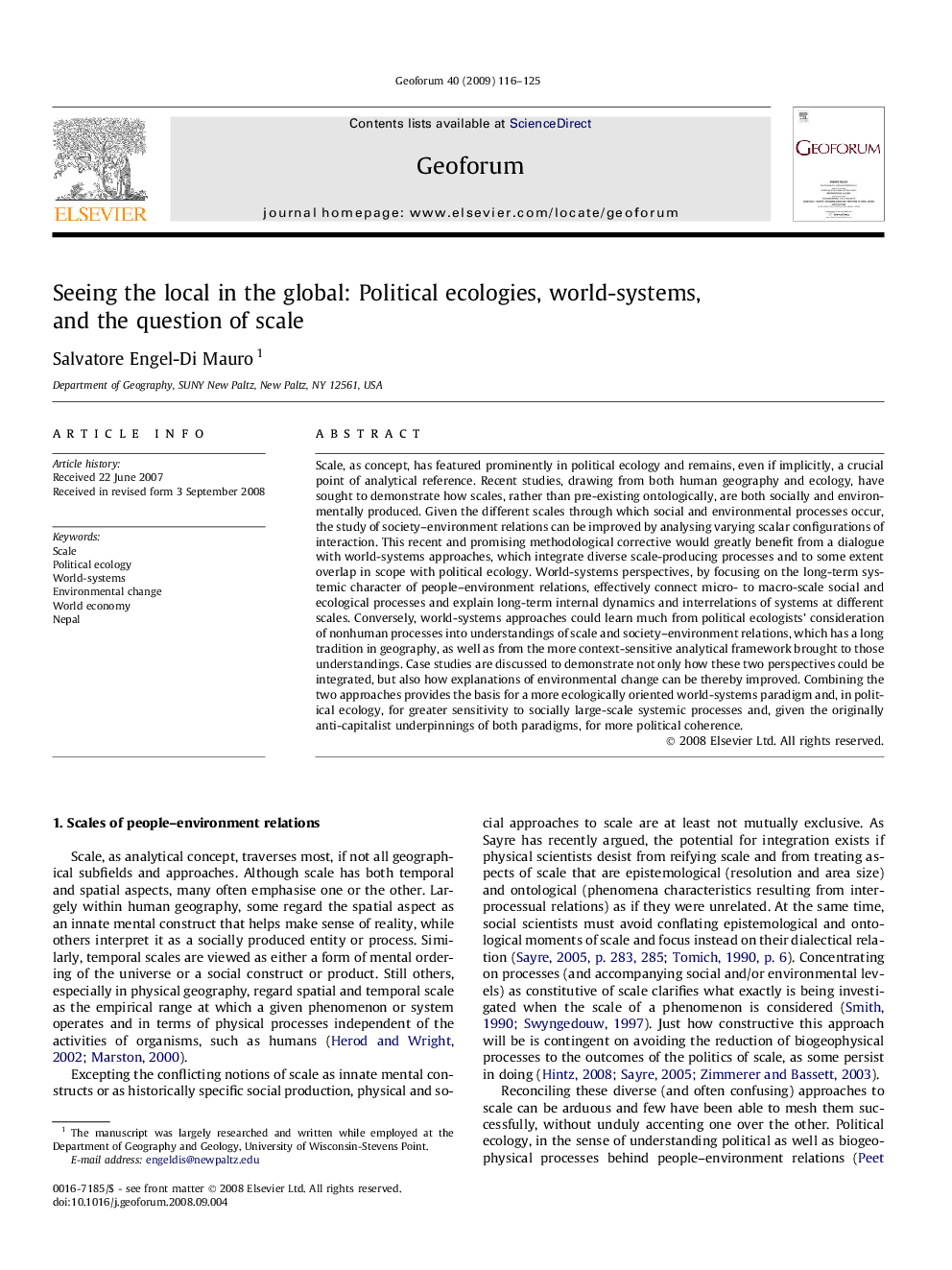| Article ID | Journal | Published Year | Pages | File Type |
|---|---|---|---|---|
| 5074752 | Geoforum | 2009 | 10 Pages |
Abstract
Scale, as concept, has featured prominently in political ecology and remains, even if implicitly, a crucial point of analytical reference. Recent studies, drawing from both human geography and ecology, have sought to demonstrate how scales, rather than pre-existing ontologically, are both socially and environmentally produced. Given the different scales through which social and environmental processes occur, the study of society-environment relations can be improved by analysing varying scalar configurations of interaction. This recent and promising methodological corrective would greatly benefit from a dialogue with world-systems approaches, which integrate diverse scale-producing processes and to some extent overlap in scope with political ecology. World-systems perspectives, by focusing on the long-term systemic character of people-environment relations, effectively connect micro- to macro-scale social and ecological processes and explain long-term internal dynamics and interrelations of systems at different scales. Conversely, world-systems approaches could learn much from political ecologists' consideration of nonhuman processes into understandings of scale and society-environment relations, which has a long tradition in geography, as well as from the more context-sensitive analytical framework brought to those understandings. Case studies are discussed to demonstrate not only how these two perspectives could be integrated, but also how explanations of environmental change can be thereby improved. Combining the two approaches provides the basis for a more ecologically oriented world-systems paradigm and, in political ecology, for greater sensitivity to socially large-scale systemic processes and, given the originally anti-capitalist underpinnings of both paradigms, for more political coherence.
Related Topics
Social Sciences and Humanities
Economics, Econometrics and Finance
Economics and Econometrics
Authors
Salvatore Engel-Di Mauro,
